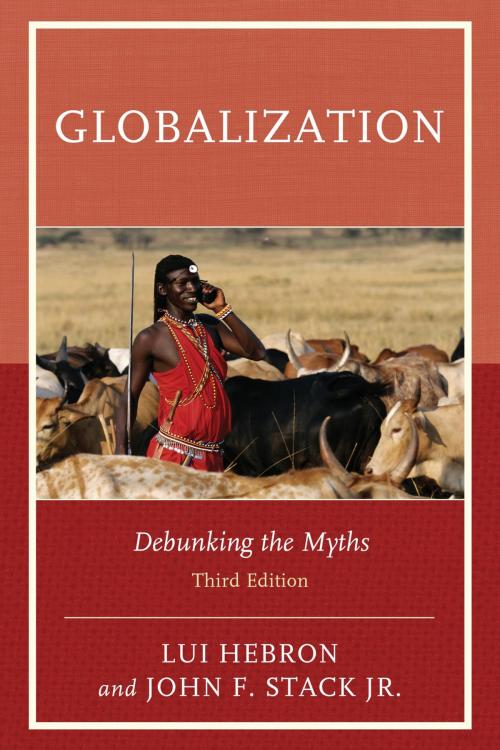| Author: | Lui Hebron, John F. Stack Jr. | ISBN: | 9781442258228 |
| Publisher: | Rowman & Littlefield Publishers | Publication: | September 22, 2016 |
| Imprint: | Rowman & Littlefield Publishers | Language: | English |
| Author: | Lui Hebron, John F. Stack Jr. |
| ISBN: | 9781442258228 |
| Publisher: | Rowman & Littlefield Publishers |
| Publication: | September 22, 2016 |
| Imprint: | Rowman & Littlefield Publishers |
| Language: | English |
Now in a fully revised and updated edition, this balanced and clearly written text explores globalization and its impact from economic, political, social, environmental, and cultural perspectives. Providing a framework and platform for student learning, the book gives readers the tools to unravel the complexities of globalization in all its facets. Lui Hebron and John Stack note that as a hot-button term, globalization is used to describe any number of changes within, among, and between societies and states. Their goal isto reduce the noise engulfing debates and interpretations of one of the most dynamic, contested, applauded, and disparaged phenomena of the twenty-first century.
Arguing that current assessments—both positive and negative—of globalization are overblown, the authors treat the dramatically changing landscapes of world politics as less a revolution than an evolution of already established structures and patterns of transnational relations. They trace how globalization has affected individuals, societies, states, and intergovernmental and supranational organizations. Making sense of a world seemingly smaller and incomprehensibly larger, simultaneously centralizing and fragmenting, Globalization: Debunking the Myths offers both an indispensableintroduction for undergraduates and a concise review for more advanced students.
Now in a fully revised and updated edition, this balanced and clearly written text explores globalization and its impact from economic, political, social, environmental, and cultural perspectives. Providing a framework and platform for student learning, the book gives readers the tools to unravel the complexities of globalization in all its facets. Lui Hebron and John Stack note that as a hot-button term, globalization is used to describe any number of changes within, among, and between societies and states. Their goal isto reduce the noise engulfing debates and interpretations of one of the most dynamic, contested, applauded, and disparaged phenomena of the twenty-first century.
Arguing that current assessments—both positive and negative—of globalization are overblown, the authors treat the dramatically changing landscapes of world politics as less a revolution than an evolution of already established structures and patterns of transnational relations. They trace how globalization has affected individuals, societies, states, and intergovernmental and supranational organizations. Making sense of a world seemingly smaller and incomprehensibly larger, simultaneously centralizing and fragmenting, Globalization: Debunking the Myths offers both an indispensableintroduction for undergraduates and a concise review for more advanced students.















